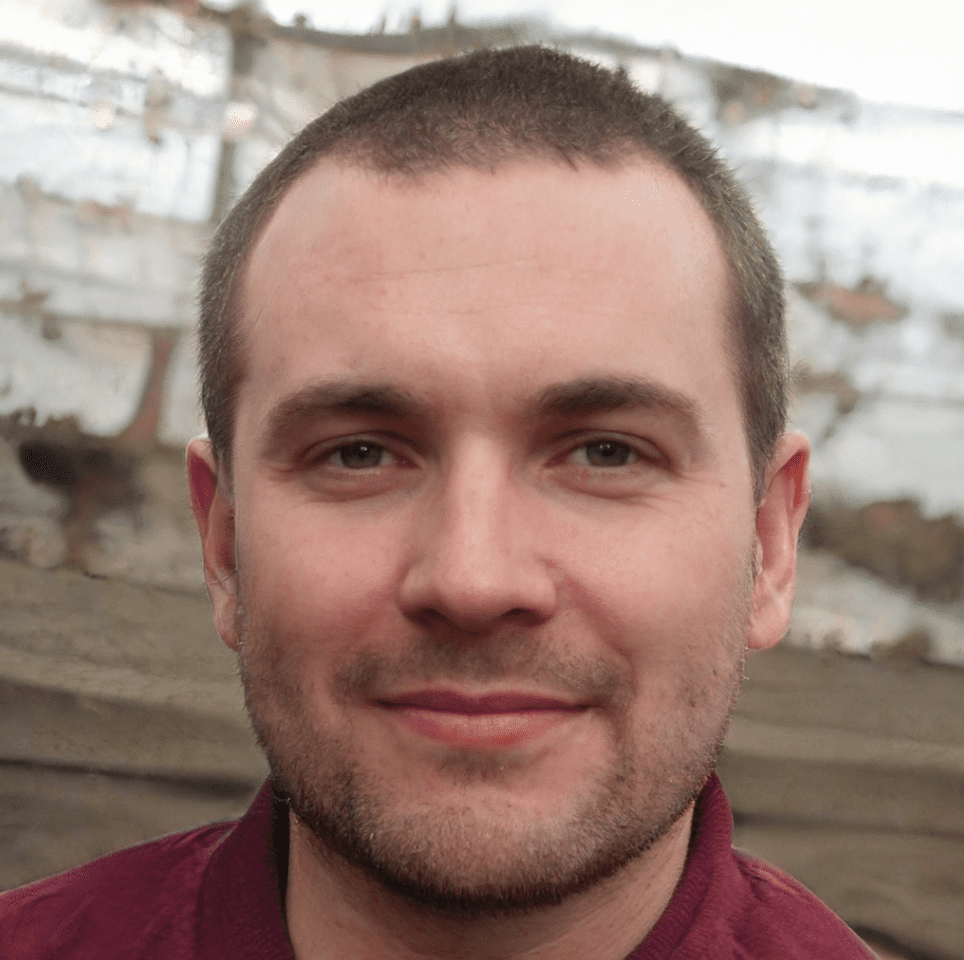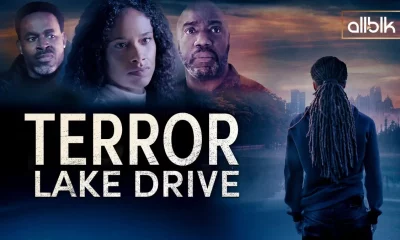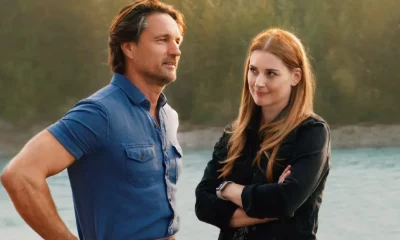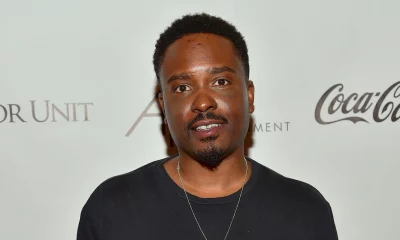Technology
I’ve been on over 50 cruises. Here are 3 routes I’d sail again in a heartbeat and 3 I’d skip.
I go on about six cruises a year, so I've tried a number of different routes.
Megan duBois
- I've been on over 50 cruises (at least six a year), and some routes are better than others.
- I now try to avoid cruises that make stops at Nassau and Freeport in the Bahamas.
- My favorite cruise I've ever been on was a Mediterranean voyage from Barcelona.
I've taken over 50 cruises with family and friends, and I'm always looking to try out new routes with different port stops.
Before I ever book a cruise — which I do about six times a year — I try to find either a new-to-me ship or a new-to-me route. If neither of those options works for my budget or timeframe, I opt for a familiar favorite.
Here are my favorite cruise routes that I'm always happy to book, and the ones I don't need to sail again.
——————————————-
By: [email protected] (Megan duBois)
Title: I’ve been on over 50 cruises. Here are 3 routes I’d sail again in a heartbeat and 3 I’d skip.
Sourced From: www.businessinsider.com/best-and-worst-cruise-routes-to-book-frequent-traveler-2024-2
Published Date: Mon, 17 Mar 2025 14:27:07 +0000

I’m Jason, and I write for ValleyNewspaper.com!
I love to travel and enjoy doing things outdoors, like hiking or working remotely from quaint little coffee shops.
The best thing about the blog for me is the ability to discuss anything, from personal life to current events.
I enjoy spending time with my Wife, 2 boys, and my Pug, Patty. I love traveling and speaking at social media events.
If you want to know anything else, ask!
Technology
Investing tips for finding cheap stocks from David Booth, the Eugene Fama pupil who built a $777B firm
David Booth; BI
- David Booth says investors' biggest pitfall is their anxiety when markets are volatile.
- He advises against trying to make market-timed bets and instead invest based on life needs.
- He finds cheap stocks by primarily focusing on price relative to book value.
Eugene Fama's efficient-market hypothesis, which states that stock prices reflect all relevant information and beating the market consistently is nearly impossible, has served as a core principle in finance.
Fama has continued his work in portfolio theory and asset pricing for over five decades while taking his research to the real world by working with investors like David Booth, who was once his student.
Booth, now the chairman of Dimensional Fund Advisors, a firm with $777 billion in assets under management and over four decades of experience, shared that journey in a documentary with his mentor called "Tune Out the Noise," which reflects on how research by a group of academics and practitioners at the University of Chicago in the 1960s challenged Wall Street's approach to investing. The documentary includes other notable Nobel Prize-winning economists with ties to the firm, including Robert Merton and Myron Scholes.
Below is an interview with Booth that discusses his journey including his thoughts on current market volatility.
This interview has been edited for length and clarity.
Business Insider: In the film, you made a statement that you don't have to predict the future, but focus instead on what can happen, which is a way to say, don't look at the bad, look at the good possibilities. What do you think can happen in markets today?
David Booth: Individual stocks, as we all know, can go to zero; you can lose 100%, but you're not going to lose 100% in the market. And in the worst of times in the depression, the market was down about 40%, which is pretty tough to deal with, but that's why you don't have to put all your money in stocks.
If you have half your money in stocks and the market is down 40%, then you're down 20%. So it's all about trying to manage the uncertainty of markets by controlling what percentage you have in stocks. And if you have a lot of anxiety about stocks, then you may want to trim back a bit.
I wouldn't recommend planning around short-term moves; there's just no evidence that that really works. So what we mean by planning is you have a view of markets and how they work, and you come up with a sensible solution. And then what you want to do is pay attention to what's going on in the market and figure out, 'Does this cause me to do anything differently based on what's happened at the market or what's happened in my personal life?'
For example, 'I won the lottery. Maybe I want to invest more in stock'. If I decide I'm going to retire, maybe you want to cut back. That sort of thing. So pay attention to what's going on in the market. That's what I mean by planning. Don't try to predict what's going to happen in the market. It's like life. Few of us could have predicted 20 years ago where we'd be today. But somewhere along the way, we adapted, and as we developed a plan, we realized we had to adapt to whatever was going on and figure out a new path forward.
The current trade wars seem to have no end. We are seeing tariff threats and then counter-tariff threats and then counter, counter-tariff threats. How do you navigate that in the market? Is that just noise, or are there considerations that investors need to take?
Booth: The market seems to say, 'Whatever is going on is not very good for stocks'. But you can't take that information and say, 'okay, well, I think I'll get out of the market'. Because the market has already reacted. Unless you know more than the market, I think you have to sit back and say, 'Look, government actions cause prices to move', but unless you're faster and smarter than everybody else, there's not much you can do about it except look at the outcome and say, 'Okay, based on what's happened, is there anything I should do differently?'
And there may be good reasons to do something differently, but not trying to time the market. You may want to do things differently because with less money in your pocket, maybe there are some things you don't buy that you're thinking about buying.
What do you think is the biggest mistake you see investors making today in markets, whether it's on the institutional or the retail side?
Booth: Well, in both, there's a similar problem, which is really hitting us hard right now, which is just anxiety. Anytime there's a spike up and uncertainty, it creates more anxiety. We do have an objective measure of uncertainty, which is the VIX index, which has spiked up recently, and when that happens, frequently, stocks decline, and anxiety levels go up. And the worst mistake people make is to try to time short-term moves.
You have a period of time, like now, with a lot of anxiety, and they go, 'Oh man, I'm stressed out. I think I'll get out.' And then the market instead of going down, goes up, they go, 'Well, I can't get in now. The train has already left the station.' So it's that kind of behavior that we're trying to help people work through in order to be able to have a good long-term investment approach.
You have stated that the lower the price you pay for a stock, the better your return is. But the open-ended question is, lower price to what? What are some of the rules that you look at when you're trying to find a rightly priced, cheap stock?
Booth: There's almost a whole industry in the academic world right now trying to research what is the best way of defining a low-price stock. And all of them are pretty good. None of them are perfect. Eugene Fama and Ken French have a tendency, which is what we use; we primarily focus on price relative to book value, but also, this low price shows up whether you do a price relative to dividends or price relative to earnings. Just in our view, scaling price by book value seems to work the best.
You like art. Do you pick your art like you pick your stocks?
Booth: Well, I tend to gravitate toward minimal art. The thing about minimal art is, at first, you might think, 'Gosh, I could have done that. That's just some squiggles'. Well, you couldn't. It's much more complex. And particularly, the large sculptures that I collect, there's a lot of engineering and structural work that has to go on. And so what comes out is something that looks pretty simple, but underneath, it was actually pretty complex. And I think that describes investing. We try to describe things in a simple way, but investing is not simple. It is complex. And sometimes, in our efforts to try to come up with sensible, simple ideas, people go, 'Geez, that's too simple'. But underneath these ideas, there's just an enormous amount of research over the last 60 years by incredibly bright people, many of whom got Nobel Prizes. So if what we do kind of sounds simple, that's kind of what we're aiming for. But trust me, underneath, it's pretty complicated.
——————————————-
By: [email protected] (Laila Maidan)
Title: Investing tips for finding cheap stocks from David Booth, the Eugene Fama pupil who built a $777B firm
Sourced From: www.businessinsider.com/david-booth-interview-stock-market-investing-tips-buying-cheap-2025-3
Published Date: Sun, 16 Mar 2025 10:30:01 +0000

I’m Jason, and I write for ValleyNewspaper.com!
I love to travel and enjoy doing things outdoors, like hiking or working remotely from quaint little coffee shops.
The best thing about the blog for me is the ability to discuss anything, from personal life to current events.
I enjoy spending time with my Wife, 2 boys, and my Pug, Patty. I love traveling and speaking at social media events.
If you want to know anything else, ask!
-

 Entertainment1 year ago
Entertainment1 year agoTerror Lake Drive: A Haunting Thriller Miniseries You Can Stream on Amazon Prime Video
-

 Entertainment1 year ago
Entertainment1 year agoVirgin River Season 5 Part 2: Has the Show Ended or Will There Be More Seasons?
-
Entertainment1 year ago
Alyssa Milano Faces Backlash for Demanding Ceasefire in Israel/Hamas Conflict
-

 Entertainment1 year ago
Entertainment1 year agoJason Weaver’s Smart Money Moves: How the Actor Made $4 Million from “The Lion King”
-

 Health1 year ago
Health1 year agoHow To Have The Perfect Day For Yourself
-

 Health1 year ago
Health1 year ago10 Luxury Accessories That Are Worth The Money
-

 Entertainment10 months ago
Entertainment10 months ago‘I AM ENTITLED TO SPECIFICITY’: A single tweet proves just how much of a liar convicted felon Donald Trump really is
-

 Health1 year ago
Health1 year agoThe Enhanced Audi Q8 – Expressive Design and Innovative Lighting Technology
















You must be logged in to post a comment Login